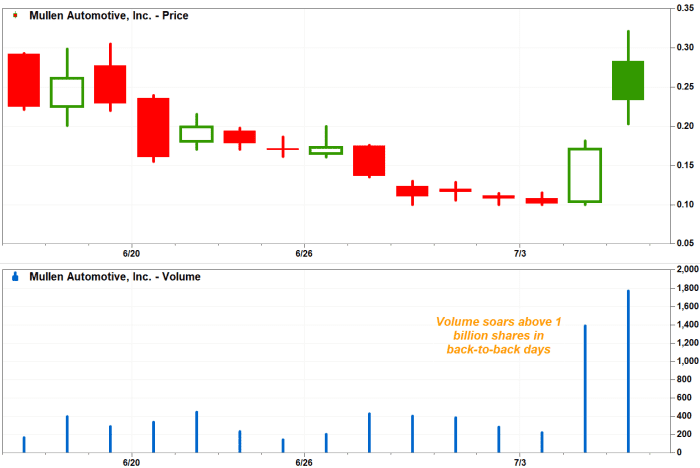Synthetic Pancreas Developed That Can Assist Keep Wholesome Glucose Ranges in Kind 2 Diabetes Sufferers


The pancreas is an organ positioned within the stomach, behind the abdomen. It’s an endocrine and exocrine gland that secretes hormones reminiscent of insulin and glucagon into the bloodstream to control blood sugar ranges, and likewise produces enzymes that help within the digestion of meals within the small gut. The pancreas is a vital organ in sustaining correct metabolism.
Synthetic Pancreas Efficiently Trialed for Use by Kind 2 Diabetes Sufferers
Scientists on the College of Cambridge have efficiently trialed a synthetic pancreas to be used by sufferers residing with kind 2 diabetes. The system – powered by an algorithm developed on the College of Cambridge – doubled the period of time sufferers have been within the goal vary for glucose in comparison with customary therapy and halved the time spent experiencing excessive glucose ranges.
Round 415 million individuals worldwide are estimated to be residing with kind 2 diabetes, which prices round $760 billion in annual international well being expenditure. In accordance with Diabetes UK, greater than 4.9 million individuals have diabetes within the UK alone, of whom 90% have kind 2 diabetes, and that is estimated to price the NHS £10 billion per 12 months.
“Many individuals with kind 2 diabetes battle to handle their blood sugar ranges utilizing the at present out there remedies, reminiscent of insulin injections. The bogus pancreas can present a secure and efficient strategy to assist them, and the know-how is straightforward to make use of and will be applied safely at house.” — Dr. Charlotte Boughton
Kind 2 diabetes causes ranges of glucose – blood sugar – to develop into too excessive. Ordinarily, blood sugar ranges are managed by the discharge of insulin, however in kind 2 diabetes insulin manufacturing is disrupted. Over time, this could trigger severe issues together with eye, kidney, and nerve injury and coronary heart illness.
The illness is often managed by a mixture of way of life modifications – improved eating regimen and extra train, for instance – and medicine, with the purpose of retaining glucose ranges low.
Researchers from the Wellcome-MRC Institute of Metabolic Science on the College of Cambridge have developed a synthetic pancreas that may assist preserve wholesome glucose ranges. The system combines an off-the-shelf glucose monitor and insulin pump with an app developed by the crew, generally known as CamAPS HX. This app is run by an algorithm that predicts how a lot insulin is required to take care of glucose ranges within the goal vary.
The researchers have beforehand proven that a synthetic pancreas run by the same algorithm is efficient for sufferers residing with kind 1 diabetes, from adults by to very younger youngsters. They’ve additionally efficiently trialed the system in sufferers with kind 2 diabetes who require kidney dialysis.
At this time (January 11, 2023), within the journal Nature Drugs, the crew report the primary trial of the system in a wider inhabitants residing with kind 2 diabetes (not requiring kidney dialysis). Not like the synthetic pancreas used for kind 1 diabetes, this new model is a completely closed loop system – whereas sufferers with kind 1 diabetes want to inform their synthetic pancreas that they’re about to eat to permit adjustment of insulin, for instance, with this model they will go away the system to operate totally mechanically.
The researchers recruited 26 sufferers from the Wolfson Diabetes and Endocrine Clinic at Addenbrooke’s Hospital, a part of Cambridge College Hospitals NHS Basis Belief, and a neighborhood group of GP surgical procedures. Sufferers have been randomly allotted to considered one of two teams – the primary group would trial the synthetic pancreas for eight weeks after which swap to the usual remedy of a number of every day insulin injections; the second group would take this management remedy first after which swap to the synthetic pancreas after eight weeks.
The crew used a number of measures to evaluate how successfully the synthetic pancreas labored. The primary was the proportion of time that sufferers spent with their glucose ranges inside a goal vary of between 3.9 and 10.0mmol/L. On common, sufferers utilizing the synthetic pancreas spent two-thirds (66%) of their time throughout the goal vary – double that whereas on the management (32%).
A second measure was the proportion of time spent with glucose ranges above 10.0mmol/L. Over time, excessive glucose ranges increase the danger of doubtless severe issues. Sufferers taking the management remedy spent two-thirds (67%) of their time with excessive glucose ranges – this was halved to 33% when utilizing the synthetic pancreas.
Common glucose ranges fell – from 12.6mmol/L when taking the management remedy to 9.2mmol/L whereas utilizing the synthetic pancreas.
The app additionally decreased ranges of a molecule generally known as glycated hemoglobin, or HbA1c. Glycated hemoglobin develops when hemoglobin, a protein inside purple blood cells that carries oxygen all through the physique, joins with glucose within the blood, changing into ‘glycated’. By measuring HbA1c, clinicians are capable of get an total image of what an individual’s common blood sugar ranges have been over a interval of weeks or months. For individuals with diabetes, the upper the HbA1c, the better the danger of growing diabetes-related issues. After the management remedy, common HbA1c ranges have been 8.7%, whereas after utilizing the synthetic pancreas they have been 7.3%.
No sufferers skilled dangerously-low blood sugar ranges (hypoglycemia) through the research. One affected person was admitted to the hospital whereas utilizing the synthetic pancreas, on account of an abscess on the web site of the pump cannula.
Dr. Charlotte Boughton from the Wellcome-MRC Institute of Metabolic Science on the College of Cambridge, who co-led the research, stated: “Many individuals with kind 2 diabetes battle to handle their blood sugar ranges utilizing the at present out there remedies, reminiscent of insulin injections. The bogus pancreas can present a secure and efficient strategy to assist them, and the know-how is straightforward to make use of and will be applied safely at house.”
Dr. Aideen Daly, additionally from the Wellcome-MRC Institute of Metabolic Science, stated: “One of many obstacles to widespread use of insulin remedy has been concern over the danger of extreme ‘hypos’ – dangerously low blood sugar ranges. However we discovered that no sufferers on our trial skilled these and sufferers spent little or no time with blood sugar ranges decrease than the goal ranges.”
Suggestions from members prompt that members have been completely happy to have their glucose ranges managed mechanically by the system, and 9 out of ten (89%) reported spending much less time managing their diabetes total. Customers highlighted the elimination of the necessity for injections or fingerprick testing, and elevated confidence in managing blood glucose as key advantages. Downsides included elevated anxiousness concerning the threat of hypoglycaemia, which the researchers say might replicate elevated consciousness and monitoring of glucose ranges, and sensible annoyances with sporting of units.
The crew now plans to hold out a a lot bigger multicentre research to construct on their findings and have submitted the system for regulatory approval with a view to creating it commercially out there for outpatients with kind 2 diabetes.
Reference: “Absolutely automated closed-loop insulin supply in adults with kind 2 diabetes: an open-label, single-center, randomized crossover trial” by Aideen B. Daly, Charlotte Okay. Boughton, Munachiso Nwokolo, Sara Hartnell, Malgorzata E. Wilinska, Alina Cezar, Mark L. Evans & Roman Hovorka, 11 January 2023, .
DOI: 10.1038/s41591-022-02144-z
The analysis was supported by the Nationwide Institute for Well being and Care Analysis (NIHR) Cambridge Biomedical Analysis Centre.






